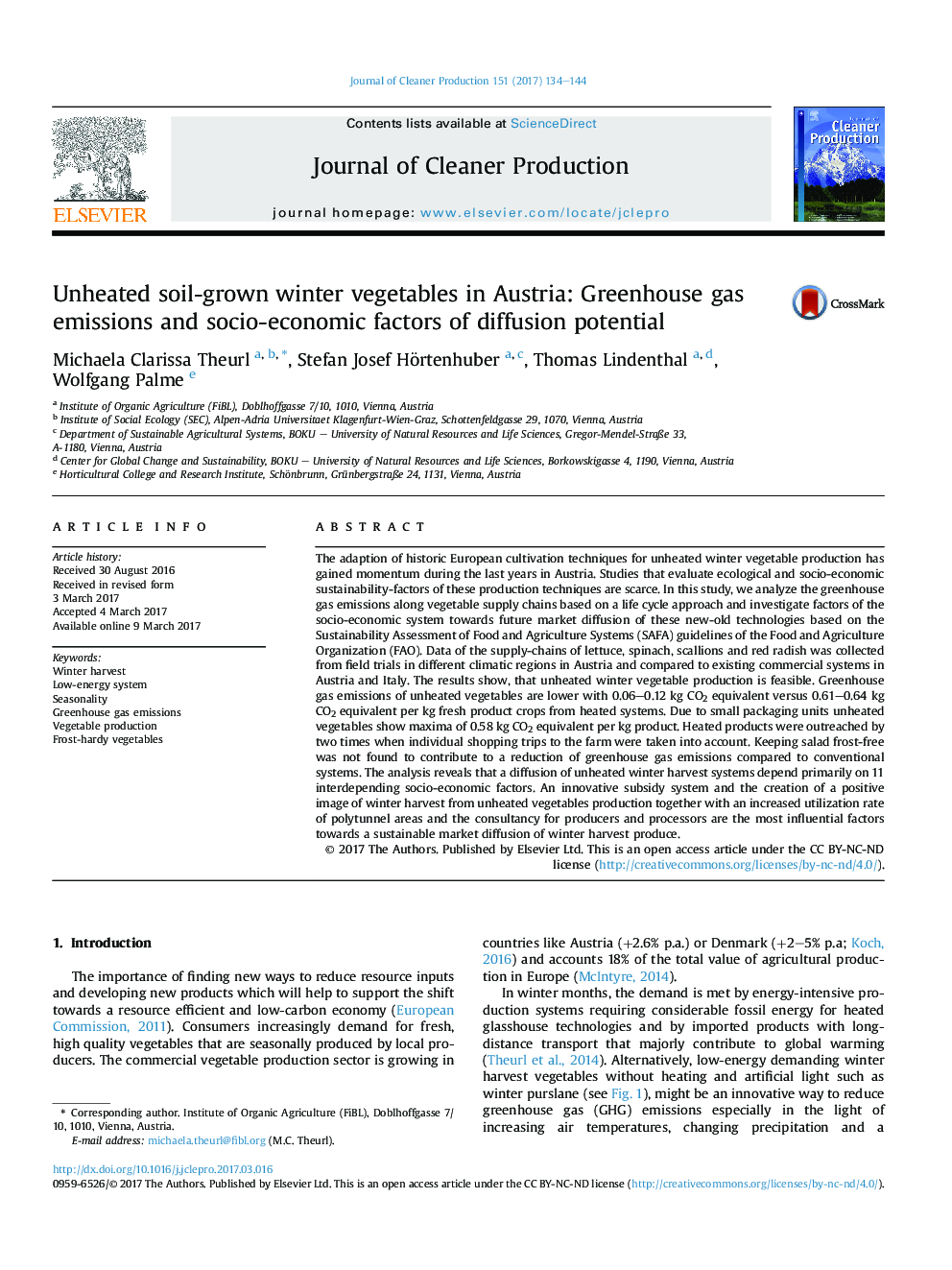| کد مقاله | کد نشریه | سال انتشار | مقاله انگلیسی | نسخه تمام متن |
|---|---|---|---|---|
| 5480092 | 1522102 | 2017 | 11 صفحه PDF | دانلود رایگان |
- Unheated vegetables e.g. salads or radish withstand indoor temperatures of â8 °C.
- Winter harvest systems have low greenhouse gas emissions (GHGE).
- GHGE: major hotspots are heating, transport and packaging.
- Larger packaging units decrease GHGE.
- Positive image creation and subsidies are pivotal towards diffusion.
The adaption of historic European cultivation techniques for unheated winter vegetable production has gained momentum during the last years in Austria. Studies that evaluate ecological and socio-economic sustainability-factors of these production techniques are scarce. In this study, we analyze the greenhouse gas emissions along vegetable supply chains based on a life cycle approach and investigate factors of the socio-economic system towards future market diffusion of these new-old technologies based on the Sustainability Assessment of Food and Agriculture Systems (SAFA) guidelines of the Food and Agriculture Organization (FAO). Data of the supply-chains of lettuce, spinach, scallions and red radish was collected from field trials in different climatic regions in Austria and compared to existing commercial systems in Austria and Italy. The results show, that unheated winter vegetable production is feasible. Greenhouse gas emissions of unheated vegetables are lower with 0.06-0.12Â kg CO2 equivalent versus 0.61-0.64Â kg CO2 equivalent per kg fresh product crops from heated systems. Due to small packaging units unheated vegetables show maxima of 0.58Â kg CO2 equivalent per kg product. Heated products were outreached by two times when individual shopping trips to the farm were taken into account. Keeping salad frost-free was not found to contribute to a reduction of greenhouse gas emissions compared to conventional systems. The analysis reveals that a diffusion of unheated winter harvest systems depend primarily on 11 interdepending socio-economic factors. An innovative subsidy system and the creation of a positive image of winter harvest from unheated vegetables production together with an increased utilization rate of polytunnel areas and the consultancy for producers and processors are the most influential factors towards a sustainable market diffusion of winter harvest produce.
Journal: Journal of Cleaner Production - Volume 151, 10 May 2017, Pages 134-144
